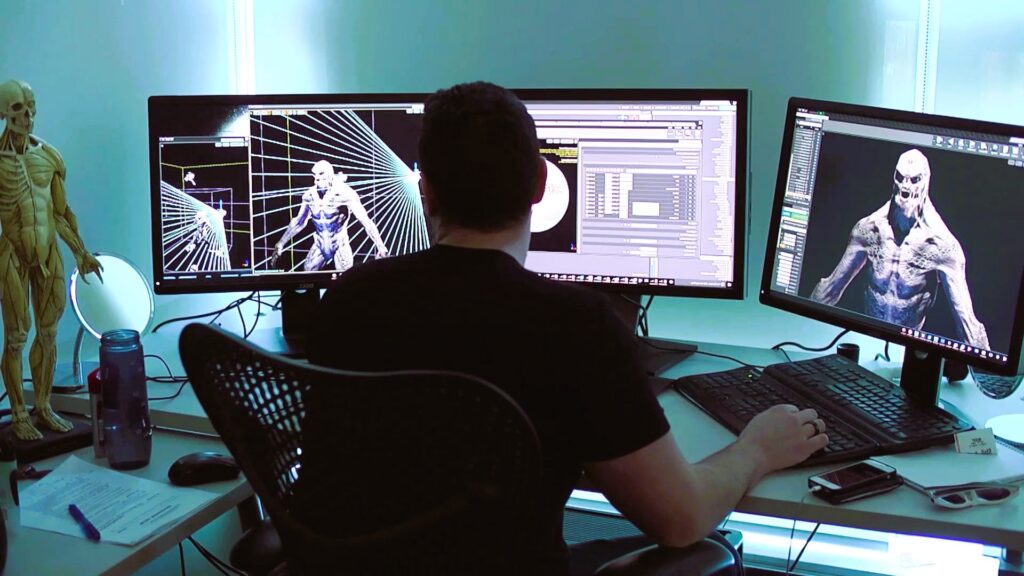Technological Innovations in Tabletop RPGs: How Modern Technologies are Changing Gameplay
Tabletop role-playing games (RPGs) have undergone significant transformations over the decades, evolving from pen-and-paper adventures to dynamic experiences that integrate modern technologies. This article explores the impact of technological innovations on tabletop RPG gameplay, highlighting advancements that enhance immersion, accessibility, and storytelling capabilities for players and game masters (GMs) alike.
Traditional Roots and the Rise of Technology
Since the inception of Dungeons & Dragons (D&D) in 1974, tabletop RPGs have relied on physical components such as rulebooks, dice, and character sheets. These games traditionally required players to gather in person, with the GM orchestrating narratives and managing game mechanics using printed resources and imagination alone.
Digital Tools and Virtual Tabletops

The advent of digital tools and virtual tabletops (VTTs) revolutionized tabletop RPG gameplay, offering new ways for players to engage with their favorite RPG systems and settings:
- Virtual Tabletop Platforms: Platforms like Roll20, Fantasy Grounds, and Tabletop Simulator provide digital environments where players can simulate traditional tabletop experiences. These VTTs feature virtual dice rolling, customizable maps and tokens, character sheets, and integrated communication tools that facilitate real-time gameplay across distances.
- Character Management Apps: Mobile apps such as D&D Beyond and Hero Lab streamline character creation and management, allowing players to access rules, track stats, and generate digital character sheets on smartphones and tablets. These apps synchronize with VTTs, enabling seamless integration of digital content into tabletop sessions.
- Online Resources and Communities: Websites like Reddit’s r/RPG, EN World, and various Discord servers serve as hubs for RPG enthusiasts to share homebrew content, discuss game strategies, and connect with players and GMs worldwide. These online communities foster collaboration and creativity, enriching the tabletop RPG experience beyond physical game sessions. An overview of the latest expansions and campaigns for tabletop role-playing games, more details here.
Augmented Reality and Immersive Experiences
Advancements in augmented reality (AR) and mixed reality (MR) technologies are poised to further transform tabletop RPGs:
- AR Game Aids: AR applications can overlay digital information onto physical game components, enhancing tabletop RPGs with interactive maps, animated NPCs, and dynamic environmental effects. This integration heightens immersion and visual storytelling, blurring the line between physical and digital gameplay elements.
- Virtual Reality Adventures: VR platforms offer players the opportunity to step into fully immersive RPG worlds, exploring dungeons, interacting with characters, and engaging in combat through virtual environments. While still emerging, VR RPG experiences promise to deliver unparalleled levels of immersion and sensory engagement.
Impact on Gameplay and Narrative
Technological innovations have profoundly influenced gameplay dynamics and narrative possibilities in tabletop RPGs:
- Enhanced Accessibility: Digital tools and online platforms make RPGs more accessible to players with physical disabilities or geographical constraints, enabling inclusive gaming experiences and expanding community engagement.
- Dynamic Storytelling: GMs leverage digital tools to craft intricate storylines, generate randomized encounters, and dynamically adjust game parameters based on player decisions. Real-time updates and interactive maps facilitate adaptive storytelling, responding to player actions in fluid and engaging ways.
- Creative Freedom: Digital resources empower players and GMs to experiment with custom rulesets, create multimedia-rich campaign settings, and incorporate audiovisual elements that enrich narrative immersion and evoke emotional responses.

Future Trends and Innovations
Looking ahead, tabletop RPGs are poised to continue evolving through advancements in artificial intelligence (AI), voice recognition, and procedural generation technologies. These innovations promise to further personalize gameplay experiences, automate routine tasks for GMs, and expand the boundaries of interactive storytelling in RPGs.
Technological innovations have redefined the landscape of tabletop RPGs, enriching gameplay experiences with digital tools, virtual environments, and online communities that transcend physical boundaries. As technology continues to evolve, tabletop RPG enthusiasts can anticipate more immersive, accessible, and collaborative gaming experiences that celebrate creativity, storytelling, and shared adventures.
For further exploration of technological innovations in tabletop RPGs, visit Fandom for additional insights and resources.

